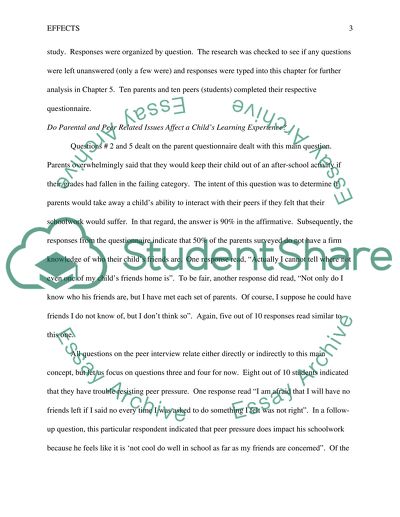Cite this document
(“Effects of Family and Peer-Related Issues on Childs Learning Assignment - 1”, n.d.)
Effects of Family and Peer-Related Issues on Childs Learning Assignment - 1. Retrieved from https://studentshare.org/psychology/1466789-effects-of-family-and-peer-related-issues-on-childs-learning-experience
Effects of Family and Peer-Related Issues on Childs Learning Assignment - 1. Retrieved from https://studentshare.org/psychology/1466789-effects-of-family-and-peer-related-issues-on-childs-learning-experience
(Effects of Family and Peer-Related Issues on Childs Learning Assignment - 1)
Effects of Family and Peer-Related Issues on Childs Learning Assignment - 1. https://studentshare.org/psychology/1466789-effects-of-family-and-peer-related-issues-on-childs-learning-experience.
Effects of Family and Peer-Related Issues on Childs Learning Assignment - 1. https://studentshare.org/psychology/1466789-effects-of-family-and-peer-related-issues-on-childs-learning-experience.
“Effects of Family and Peer-Related Issues on Childs Learning Assignment - 1”, n.d. https://studentshare.org/psychology/1466789-effects-of-family-and-peer-related-issues-on-childs-learning-experience.


